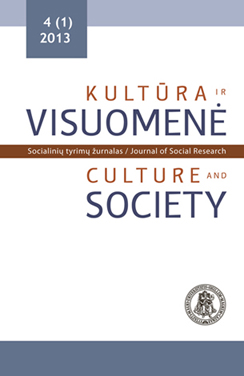Mediciniškai nepaaiškinami negalavimai pirminės sveikatos priežiūros sistemos vadovų požiūriu
Medically Unexplained Illnesses from the Point of View of Primary Health Care System’s Interests
Author(s): Gediminas Raila, Ingrida Naujokaitė, Leonas Valius, Vylius Leonavičius, Giedrė BaltrušaitytėSubject(s): Cultural Essay, Political Essay, Societal Essay
Published by: Vytauto Didžiojo Universitetas
Keywords: Primary health care; medically unexplained illnesses; typology of health conception; managers of health institutions
Summary/Abstract: In the primary health care system (PHCS) there are illnesses unrelated to any organic pathology. They are described as medically unexplained illnesses (MUI). The debatable origin of the symptoms raises a number of questions for PHCS. Difficult diagnosis requiring a large number of various tests. Patients complaining of medically unexplained illnesses are considered to be an economic burden to the health care system and undermine the image of the medical profession. The article discusses the interest of the PHCS from the point of MUI. The analysis is grounded on the data of interview with directors of primary health care institutions (policlinics). According to R. Collins, the managers of very high positions of the hierarchical systems identify themselves with the system. They identify their interests with the interests of the system. It means that from the point of the MUI the directors are in a very controversial position. On one hand, they are inclined to maintain the biomedical conception of disease. This conception allows to define a very strict line between the biomedical reasons of diseases and speculations about diseases. In this case they prefer a clearer diagnosis because it improves the image of a PHC institution and doctors. On the other hand, the MUI serves as a very easy way to get more money from the National Health Insurance Fund. Every PHC institution have second-level-specialists and get money for each consultation of a specialist. The institutions’ interest is to direct more patients from the first level to the second level and get more money.
Journal: Kultūra ir visuomenė: socialinių tyrimų žurnalas
- Issue Year: IV/2013
- Issue No: 1
- Page Range: 65-80
- Page Count: 16
- Language: Lithuanian

